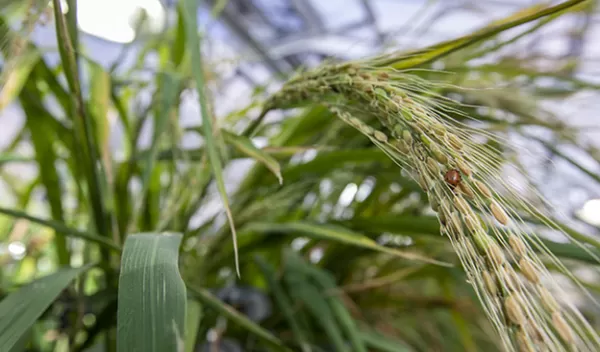
Weedy rice has become herbicide-resistant through rapid evolution
In research published in the journal Communications Biology, U.S. National Science Foundation-supported scientists at Washington University in St. Louis and the University of Arkansas report that a crop pest called weedy rice has become widely herbicide-resistant. The study highlights the challenges facing U.S. rice farmers when they battle a weedy enemy closely related to a desirable crop plant.
"This study illustrates the use of genomics technologies and basic research to provide significant new insights into the genetics of weediness, information critically needed to develop sustainable weed management strategies for agriculture," said Diane Okamuro, a program director in NSF's Division of Integrative Organismal Systems. "Public-private partnerships will be key to translating these discoveries into applications that promote the U.S. bioeconomy."
The genetic investigation was conducted with samples gathered in rice fields in Arkansas, where almost 50% of the nation's rice is grown.
Weedy rice is a closely related cousin of crop rice. It aggressively competes with cultivated rice in the field, leading to loss of yield and reductions in harvest quality that compromise market value. Weedy rice infestations cause an estimated $45 million in economic losses in the U.S. each year.
Biologists used whole-genome sequences of 48 contemporary weedy rice plants to show how herbicide resistance evolved by gene flow from crop rice. Almost all other cases of herbicide resistance in agricultural weeds result from selection of tolerant genotypes in the weed species. However, just 20 years after herbicide-resistant rice was first adopted in the southern U.S., most fields with a history of herbicide-resistant rice cultivation have weedy rice plants that are also herbicide-resistant.
"Technological changes in U.S. rice farming since the 2000s have led to a complete genetic revolution in the makeup of the weedy rice that infests U.S. fields," said Kenneth Olsen of Washington University, senior author of the study.
"In the last 20 years, weedy rice has gone from being very genetically distinct from U.S. crop varieties to mostly being derived from crop-weed hybridization," Olsen said. "The weeds are grabbing certain traits from the crop that are beneficial to them, including herbicide resistance."
